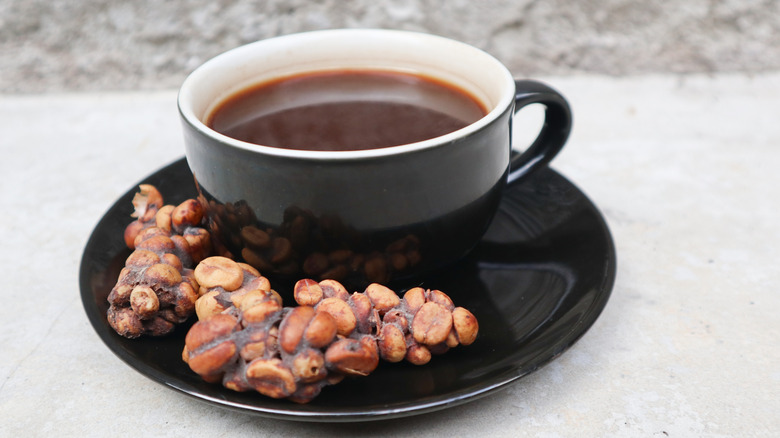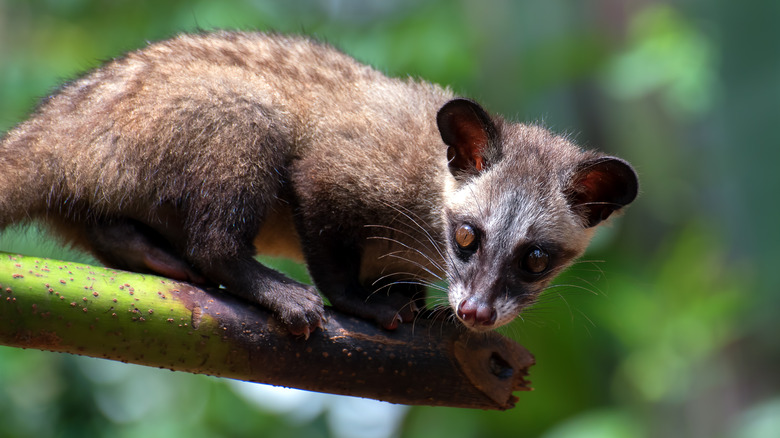Is Kopi Luwak Coffee Really Made From Poop?
We may receive a commission on purchases made from links.
Kopi luwak is a kind of coffee you probably haven't tried before. It's definitely not the type of coffee you can order from your local Starbucks or find in your neighborhood supermarket, in part because it comes from Indonesia and is produced from animal feces. This so-called "poop coffee" happens when a small cat-like animal known as a palm civet eats the fruit of the coffee plant. Then, unable to digest anything but the outer layer of the coffee fruit, the civet excretes the bean. Those raw coffee beans are collected and cleaned — will you ever complain about your job again? — before being roasted.
It's important to note that kopi luwak coffee is not a specific type of coffee beans but instead, a process by which a specific variety of coffee is made. The civets eat arabica coffee beans (the same type of coffee bean used at Starbucks). That's a particularly common type of bean, as about 70% of the coffee consumed worldwide is made from arabica beans. It's the civet's digestion process that brings such a unique flavor to such a common coffee bean. The labor-intensive, time-consuming process also contributes to the coffee's high price.
Look for ethically sourced kopi luwak
Kopi luwak coffee can cost up to $600 a pound. Unfortunately, the animals could be paying an even greater price for this novelty coffee. In an attempt to profit from the demand for the coffee, wild palm civets in some parts of the world are captured raised in captivity, where they may be given only coffee beans to eat. This unbalanced diet affects the health of the civets, who then produce a lesser-quality bean due to poor nutrition. Thankfully, there are ethical growers who allow the civets to roam freely and consume a more varied and healthful diet.
So, assuming you've sourced kopi luwak from an ethical producer who treats the civets well, what does it actually taste like? Not feces, for one. Some say it has flavors of chocolate. Others say it's sweet enough on its own that adding sugar is unnecessary. If you want to try it for yourself, you can buy a 3.53-ounce bag of ethically-sourced kopi luwak on Amazon for only $114.

